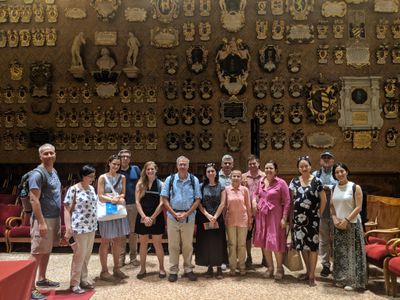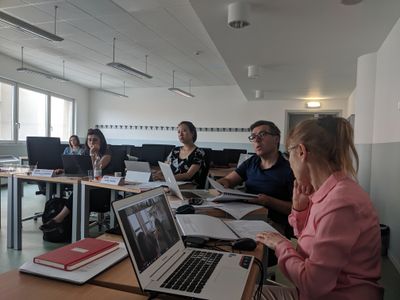Cross-Cultural Research Team Investigates Educator Views on SEL
Cross-Cultural Research Team Investigates Educator Views on SEL

A cross-cultural team researchers led by Scott Solberg and Lea Ferrari (University of Padova) met in Padua (Padova), Italy in July to share the initial results of a five-year investigation into educator perceptions of the nature and value of social emotional learning (SEL). Solberg and Ferrari’s collaboration is supported by the Boston University/Università degli studi di Padova faculty exchange program.
The July meeting focused primarily on sharing individual country results from educators about their perceptions of the nature and value of their own SEL skills as well as what SEL skills they believe students need in order to succeed in life. Prior to the meeting, each country identified key SEL themes that emerged from the educator responses and the July meeting was used to report each country’s results and begin to reflect on convergent and divergent themes.
Teams completing the first wave of data collection included China, Finland, Germany, Greece, Guatemala, Israel, Italy, Japan, Korea, Portugal, Romania, South Africa, Turkey, Uganda, and United States.

Boston University doctoral student Kate Newman reflected on the nuanced differences that emerged. “While SEL is popular in the United States, the specific SEL skills are often used loosely,” she says. “By sharing each country’s results, we are able to look deeper at different shades of meaning that may reflect cultural, societal, and political differences in our conceptualization of specific SEL skills.”
The next phase of the research involves identifying SEL themes that will be used to design an educator SEL self-efficacy measure and conduct a cross-cultural validation of the measure. The research network will produce a document that can be translated and presented in various languages showcasing the value of SEL skills on academic outcomes and how SEL skills connect to both career readiness and positive youth development.